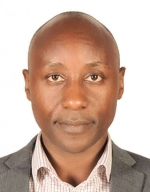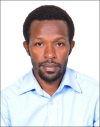Denis Muhangi
ID: UNCST-2020-R014258
|
Social – Behavioral / Anthropological Study on COVID-19 in Uganda
REFNo: SS700ES
The overall objective of this anthropological study is to generate evidence-based insights on why people behave the way they do in response to COVID-19 and the recommended preventive measures; and to provide recommendations on potential approaches that are culturally and socially acceptable that can be applied to improve compliance and enhance adoption of sustainable behavior change across different groups and the general public in Uganda.
The specific Objectives are:
To assess the extent and how different sections of the population adhere to / comply with the set of desired behaviors / practices as recommended by Government.
To establish trends in behaviour change since the beginning of the COVID-19 crisis.
To establish why people behave the way they do, taking into account the different target groups (individual or group), differences in culture and the immediate context (social economic and structural factors).
To assess the changing community dynamics and the effect of the COVID-19 measures on individual and communal norms that have a bearing on COVID-19 transmission such as - mass gatherings in school set-ups, religious, social and cultural congregations e.g., entertainment, weddings and burial practices.
To establish what each target group thinks would be the prerequisites to protect themselves from COVID-19.
To identify potential culturally and socially acceptable approaches/solutions to health problems which can be applied to improve compliance and enhance adoption of sustainable behavior change - across different groups.
|
Uganda |
2021-01-25 |
2024-01-25 |
Social Science and Humanities |
|
Non-degree Award |

|
Innocent Besigye Kabahena
ID: UNCST-2019-R001025
|
Evaluating the use of the primary care assessment tool to improve primary care performance in Tororo District, Uganda
REFNo: HS1174ES
1. To adapt and validate the patients'. managers' and health care providers' primary care assessment tools.
2. To measure primary care performance using adapted and validated PCAT tools.
3. To evaluate the implementation of the designed intervention to improve primary care performance.
|
Uganda |
2021-01-25 |
2024-01-25 |
Medical and Health Sciences |
|
Degree Award |

|
Eddy Walakira Joshua
ID: UNCST-2022-R009077
|
Uganda Commercial Sex Exploitation of Children
REFNo: SS724ES
1) Estimate the prevalence of children at of, and engaged in commercial sex exploitation in Karamoja
2) Estimate the proportion of children in Kampala involved in commercial sex exploitation
3) Measure Knowledge, attitudes and practices around CSEC in Karamoja
|
Uganda |
2021-01-25 |
2024-01-25 |
Social Science and Humanities |
|
Non-degree Award |

|
Evelyn Avalos
ID:
|
The impact of protracted refugee displacement and disrupted intergenerational relations on the secure and healthy futures of older people in Uganda
REFNo: SS462ES
-To identify later-life forcibly displaced survival strategies/sustainable livelihoods in a context of family separation
- To understand who covers the needs of aged refugees and to what extent they are covered. Specifically when family relationships and State's social security are disrupted
- To explain the role of place in shaping lives and ageing experiences of aged refugees
-To discover how later-life identities and attachments could be shaped at different social and spatial scales
|
El Salvador |
2021-01-22 |
2024-01-22 |
Social Science and Humanities |
Non-Clinical Trial |
Degree Award |

|
Sona Shah
ID:
|
Adoption of a wireless vital sign monitor for observation of COVID-19 patients
REFNo: HS733ES
1. To evaluate the feasibility of a wireless vital sign monitor for use on critical patients in COVID-19 treatment facilities
2. To assess the accuracy of a wireless vital sign monitor (neoGuard) on adult patients
|
USA |
2021-01-22 |
2024-01-22 |
Medical and Health Sciences |
|
Non-degree Award |

|
Christine Nalwadda Kayemba
ID: UNCST-2020-R014220
|
Understanding Leadership and Accountability mechanisms in delivering a responsive Maternal and Newborn care in a decentralized health system, Uganda: Lessons for SRHS improvement
REFNo: HS1024ES
Broad objective:
The main objective of this study is to assess leadership and accountability mechanisms for maternal and newborn health in decentralized health systems in Uganda in order to formulate a theory of change for delivering an efficient health services for maternal and newborn health
Specific Objective:
1.Review existing health systems policies in order to highlight leadership and accountability guidelines/policies for maternal and newborn health
2.Explore health systems managers’ understanding and interpretation of leadership and accountability guidelines/policy directives for maternal and newborn health
3.Describe how decentralized health systems managers adapt and implement leadership and accountability policies in maternal and newborn health
|
Uganda |
2021-01-22 |
2024-01-22 |
Medical and Health Sciences |
|
Non-degree Award |
.jpeg)
|
Warren Phipps
ID:
|
Attitudes and Practices of Antimicrobial Resistance and Stewardship at the Uganda Cancer Institute
REFNo: HS871ES
We will investigate the knowledge, attitudes, and practices about antimicrobial use and antimicrobial resistance among the doctors (including medical officers, fellows, oncologists, and surgeons), nurses, and pharmacists at the Uganda Cancer Institute (UCI).
The aims of the study are;
Aim 1: To examine the current knowledge and attitudes of UCI healthcare providers towards antimicrobial resistance.
Aim 2: To determine the current knowledge and attitudes of UCI healthcare providers towards antimicrobial stewardship.
Aim 3: To understand perceived barriers to the diagnosis and management of infections in patients at UCI
|
USA |
2021-01-22 |
2024-01-22 |
Medical and Health Sciences |
|
Non-degree Award |

|
Jennifer Serwanga
ID: UNCST-2024-R002056
|
Characterising the Global Immune Response to SARS-CoV-2 in COVID-19 Acutely Infected and Recovered Ugandans
REFNo: HS997ES
To describe the frequencies and phenotypes of SARS-CoV2 induced immune
responses in qrt-PCR COVID-19 confirmed Ugandan cases.
b) To describe the evolution and durability of the induced responses.
c) To describe factors associated with COVID-19 disease outcome.
d) To isolate and clone SARS-CoV-2 spike specific human monoclonal antibodies with
potent virus neutralising capabilities
|
Uganda |
2021-01-22 |
2024-01-22 |
Medical and Health Sciences |
|
Non-degree Award |

|
David Musoke
ID:
|
A feasibility study for a randomised controlled trial on integrated malaria prevention in Wakiso district, Uganda
REFNo: HS999ES
1. To explore community willingness to participate in an RCT on integrated malaria prevention.
2. To assess stakeholder perspectives on the RCT on integrated malaria prevention.
|
Uganda |
2021-01-22 |
2024-01-22 |
Medical and Health Sciences |
|
Non-degree Award |

|
David Musoke
ID:
|
Use of Photovoice to explore community members perspectives on health and healthcare challenges in Mukono District, Uganda
REFNo: HS1058ES
To use photovoice as a community-based participatory research method to explore healthcare delivery including barriers and challenges in Mukono district so as to provide information to inform future research and interventions to improve health of the community.
|
Uganda |
2021-01-22 |
2024-01-22 |
Medical and Health Sciences |
|
Non-degree Award |

|
ALEX NDYABAKIRA
ID:
|
Durability monitoring of Long Lasting Insecticidal Nets in Uganda,
distributed during the 2020 mass campaign
REFNo: HS1109ES
Primary objective
1.To assess the physical durability of 5 different brands of nets over a three-year period, estimate median LLIN survival and identify major determinants of field performance
Secondary objectives
1. To describe major behavioral aspects of net care and repair and their impact on physical durability
2. To assess the insecticidal effectiveness (bio-efficacy) and chemical residue of 5 ITN brands during three years of field use
|
Uganda |
2021-01-22 |
2024-01-22 |
Medical and Health Sciences |
|
Non-degree Award |

|
Philippa Musoke
ID: UNCST-2021-R013523
|
Clinical manifestations and Outcomes of SARS-CoV-2 Infection in pregnancy in Africa: Novel Insights from the Democratic Republic of the Congo, Ghana, Kenya, Nigeria, South Africa and Uganda (AFRE-Mom-CoV-19) protocol
REFNo: HS1164ES
To retrospectively investigate the socio-demographic and clinical characteristics and maternal/infant outcomes of pregnant patients with RT-PCR-confirmed SARSâ€CoVâ€2 infection in six west, east, central and southern African countries: DRC, Ghana, Kenya, Nigeria, South Africa and Uganda.
|
Uganda |
2021-01-22 |
2024-01-22 |
Medical and Health Sciences |
|
Non-degree Award |

|
Amon Nuwahereza
ID: UNCST-2022-R011428
|
Ride and Arrive Safe (RAS).
A Case study of Mbarara Municipality
REFNo: HS577ES
i. To explore the feasibility of the community facilitation and engagement approach in equipping the Boda-boda cyclists with safety riding knowledge and skills.
ii. To develop a Boda-boda safety user check the mobile application for passengers using Boda-boda a means of transport
iii. To evaluate the effect of Boda-boda cyclist training and community engagement in reducing the number of Boda-boda road traffic accident-related admissions at Mbarara Regional Referral Hospital.
|
Uganda |
2021-01-21 |
2024-01-21 |
Medical and Health Sciences |
|
Non-degree Award |

|
Denis Bwayo
ID:
|
Program Assessment and Implementation Learning for the University Research Co., LLC - Department of Defense HIV Prevention Program – Uganda
REFNo: HS959ES
1.To determine compliance to program set targets for the URC-DHAPP program between October 2018 and September 2021
2.To assess the quality of HIV services delivered at 28 UPDF HIV clinics
3.To determine program outcomes across key program implementation strands in line with 95:95:95 frameworks
4.To share implementation experiences across key program implementation strands including HIV testing, ART services, TB diagnosis and management, PMTCT, OVC and systems strengthening.
|
Uganda |
2021-01-21 |
2024-01-21 |
Medical and Health Sciences |
|
Non-degree Award |

|
Kamya Moses
ID: UNCST-2020-R014203
|
ENHANCED ENTOMOLOGICAL SURVEILLANCE(EES) TO INFORM MALARIA CONTROL IN UGANDA
REFNo: HS1059ES
1. To examine the impact of current vector control interventions on malaria vector densities, vector behaviour, and species composition.
2. To monitor the status and intensity of insecticide resistance.
3. To establish the entomological inoculation rates in the selected districts.
4. To build the capacity of districts to conduct routine entomological surveillance
|
Uganda |
2021-01-21 |
2024-01-21 |
Medical and Health Sciences |
|
Non-degree Award |

|
Philippa Musoke
ID: UNCST-2021-R013523
|
Manifestations and Outcomes of Hospitalized African children and Adolescents with SARS-CoV-2 Infection: Insights from the Democratic Republic of the Congo, Ghana, Kenya, Nigeria, South Africa and Uganda (AFRE-Ped-CoV-19) protocol Version November 06 2020. Grant No. 1R25TW011217-01
REFNo: HS1168ES
Study Aims
a) To describe the socio-demographic features; clinical WHO COVID-19 staging at admission, clinical characteristics, laboratory features including inflammatory and
cardiac markers; imaging investigations and associated abnormalities, treatments applied; and comparisons within and across participating African countries.
b) To estimate the prevalence of comorbidities at presentation and recent/current treatment with immunosuppressive drugs and comparisons within and across
participating African countries.
c) To estimate the prevalence of associated tuberculosis (past, current), HIV status (HIV-exposed uninfected or HIV-infected, and type of treatment if HIV-infected), malaria, bacterial infections influenza and other viral infections and comparisons within and
across participating African countries.
d) To assess overall mortality and independent factors associated with mortality and comparisons within and across participating African countries.
|
Uganda |
2021-01-21 |
2024-01-21 |
Medical and Health Sciences |
|
Non-degree Award |

|
Grace Ndeezi
ID: UNCST-2019-R001802
|
A Phase 2b Study to Evaluate the Safety and Efficacy of IMR-687 in Subjects with Sickle Cell Disease
IMR-SCD-301
REFNo: HS1130ES
Primary Objectives
To evaluate the HbF response to IMR-687 versus placebo
To evaluate the safety of IMR-687 versus placebo
Secondary Efficacy Objectives
To evaluate the effect of IMR-687 versus placebo on HbF-associated biomarkers
To evaluate the effect of IMR-687 versus placebo on indices of red cell hemolysis
To evaluate the effect of IMR-687 versus placebo on indices of WBC adhesion
To evaluate the effect of IMR-687 versus placebo on the incidence of VOCs
To evaluate the effect of IMR-687 versus placebo on quality of life (QoL) measures
Pharmacokinetic Objectives
To evaluate the PK of IMR-687 and any major circulating metabolites
Exploratory Efficacy Objectives
To evaluate the effect of IMR-687 versus placebo on changes in RBC characteristics and total Hb
To evaluate the effect of IMR-687 versus placebo on renal function
To evaluate the effect of IMR-687 versus placebo on indices associated with cardiovascular pathophysiology and ischemic stroke risk
|
Uganda |
2021-01-21 |
2024-01-21 |
Medical and Health Sciences |
|
Non-degree Award |

|
FRED SEMITALA COLLINS
ID: UNCST-2020-R014096
|
Strengthening Integrated Screening for TB and COVID19 in Kampala, Uganda
REFNo: HS1152ES
The overall goal is to establish the acceptability, feasibility and potential for scaling up the use of COVID19-TB Screening algorithm at Kiruddu National Referral Hospital.
Specific objectives
(1) To explore the perspectives of healthcare providers on the integration of COVID19 and TB screening at Kiruddu National referral Hospital.
(2) To determine the effect of the COVID19-TB algorithm on the proportion of patients screened for TB at Kiruddu National Referral Hospital over a 4-month period.
|
Uganda |
2021-01-21 |
2024-01-21 |
Medical and Health Sciences |
|
Non-degree Award |

|
Kirsten Beyer M
ID: UNCST-2021-R013472
|
Assessing Health Professionals’ Knowledge, Perspectives and Practices Regarding HPV and Cervical Cancer Prevention and Control among Women Living with Human Immunodeficiency Virus Infection in Uganda
REFNo: HS782ES
General Objective
The proposed study seeks to examine the role that health professionals play in influencing WHIVs’ perceptions of HPV and cervical cancer and their associated health behaviors in Uganda.
Specific Objective
Interview public health and health care professionals (including clinicians, nurses, counselors, other/public health professionals, and community health workers/village health teams) to examine the following:
1. Knowledge regarding how HPV or cervical cancer impacts WHIV, which populations are impacted most, and frequency of HPV vaccination, screening and treatment.
2. Perspectives regarding barriers/facilitators of cervical cancer and HPV prevention and treatment among WHIV.
3. Practices regarding HIV professionals’ work in cervical cancer and HPV.
|
USA |
2021-01-20 |
2024-01-20 |
Medical and Health Sciences |
|
Non-degree Award |

|
Emmanuel Sendaula
ID: UNCST-2020-R014767
|
Clinical profile of HIV-infected patients receiving a holistic approach of care model attending Reach Out Mbuya facilities in Kampala district
REFNo: HS903ES
Main Objective
To describe the clinical profile and the factors associated with viral suppression status among HIV-infected patients receiving a holistic approach of care model in Kampala District.
Specific objectives
1. To describe the clinical profile of HIV-infected patients receiving a holistic model of care in Kampala District.
2. To determine the socio-demographic factors associated with viral suppression status among HIV-infected patients receiving a holistic model of care in Kampala District.
3. To determine the clinical factors associated with viral suppression status among HIV-infected patients receiving a holistic model of care in Kampala District.
|
Uganda |
2021-01-20 |
2024-01-20 |
Medical and Health Sciences |
|
Non-degree Award |

|
| View |
|
Sort By: |
|
|
|
| |
|